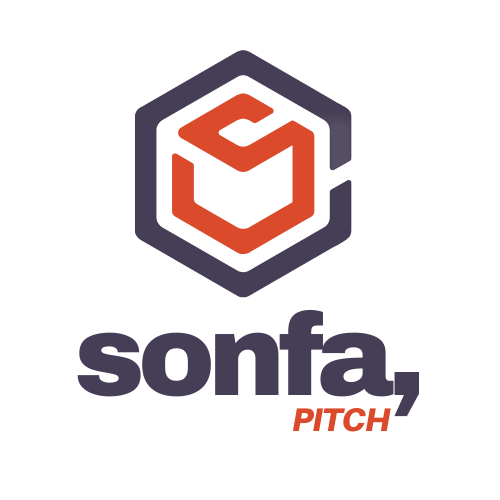Everyone knows Hollywood is where movies are born, but Hollywood’s reputation for music is just as strong as its reputation for film.
Jaws’ foreboding two-note ostinato was recorded at Universal and 20th Century Fox. Jack Sparrow’s swashbuckling theme in Pirates of the Caribbean came to life at Sony’s scoring stage. The hallowed halls of The Culver Studios hosted the recording of Disney’s musical epic, Fantasia.
Hollywood Scoring is not only keeping this culture of music alive, but it’s also keeping this business in Los Angeles.
“I’ve always been enamoured with the studio system of the Golden Age of Hollywood. You would have a whole music department, a full-time orchestra on staff, staff composers, staff orchestrators, copyists, and mixers — end-to-end, full production for music. That creates a wonderful landscape for creativity,” says Noah Gladstone.
Gladstone is one of the four principals in charge of Hollywood Scoring (HS), a full-service music production studio in Los Angeles that opened in 2011. While HS doesn’t employ full-time staff in the same way as the Golden Age, they have the facilities and network to offer end-to-end production.
They contract for composition, recording, mixing, mastering, and performance (including full orchestras) in various forums. The music they have shepherded has been placed in numerous television programs, video games, and live spaces.

One of their consistent clients, Riot Games’ League of Legends (LoL), encapsulates all three. HS produced music for the game, the Netflix TV show in the LoL universe, Arcane, and they were the driving force in producing, contracting, arranging, orchestrating, and engineering the LoL world championship celebrations from 2012-14 and 2016-22 (which were viewed by millions of people).
Gladstone met Edouard Brenneisen, one of the other principals for HS through LoL. The other two principals are Michael Barry and Adam Michalak. All four of them have considerable experience in the music industry.
Gladstone is a professional brass player and project manager who has been contracting musicians for visual media since he was a student at USC, working with student composers. He also oversaw a scoring stage called The Bridge Recording prior to HS. Brenneisen has composed for video games such as Overwatch 2 and television programs such as Yu-Gi-Oh!. Barry has worked on scores with John Williams while also writing for Imagine Dragons, and Michalak was the house recordist at Sony Scoring for 16 years.
All four of them built careers in music within Los Angeles, which led to natural collaborations time and time again. HS is their way of allowing other artists to do the same thing: build a network and remain employed as the looming shadow of AI grows larger and larger.

“Every second that you’re thinking about the music, you’re thinking about what we are trying to say with this moment. Whether that’s communicating to the first violins to play more legato, or having a trumpet stick out, or having a bassoon go down an octave. It’s all of those little choices that the average person might not notice, but that’s part of the art,” Gladstone says.
“There are opportunities that show up when a bunch of really skilled people come into a room together — ‘I’m seeing something I didn’t imagine before, let’s chase that’,” Brenneisen says.
Though HS works in a longstanding media format, the team embraces new forms of technology. This intention is apparent in the modern projects they’ve produced, but also in how their facilities function. After working at Sony for over a decade, Milichak (to whom Gladstone refers as “The Mad Scientist”), was expertly familiar with how the Sony Scoring Stage, one of the most famous scoring stages in history, operated on a technical level. He was also well aware that following the same model for a new studio was impractical.
“The way recording studios used to be built and wired—even if we’re recording on computers—is still a very analogue process. There’s a lot of analogue audio cable running between the live room, the control room, and the converters into the Pro Tools system. Most of the studios in LA and across the country followed that topology because the infrastructure has been in the walls, in a sense, for a very long time,” Milichak says. “If you didn’t have any of that infrastructure what would you do today? It quickly became apparent that we don’t want to do that.”

One reason they didn’t want to do that when they opened their Los Angeles facility in 2018 is price. HS has two scoring studios that can fit dozens of musicians each. The cost of building the infrastructure to enable both of those rooms to record simultaneously with that analogue process would be considerable.
To boot, using both rooms simultaneously is a beneficial offering for HS. Isolating groups of instruments like strings and brass to avoid sonic clashing makes for a clearer, more versatile mix.
So, to use the HS facilities to their maximum potential, not only do the two rooms need to send audio back to the single main control room, but the two rooms must communicate with each other, all with zero latency.
Milichak’s method of addressing this was Dante, audio over IP. By using Dante-enabled equipment throughout HS facilities, all of the audio runs on a few Cat6 cables. Said audio includes the music being recorded into their Pro Tools rig in the control room and the audio entering the numerous pairs of headphones among the musicians recording live in the studios, essentially acting as a monitor mix to ensure both rooms are perfectly in sync.

The studio is also wired with video as well. With this tech, HS can stream video and audio to external sources, so clients can observe sessions from anywhere in the world, providing feedback in real time even if they’re not in the room.
“Audio over IP had taken a foothold in broadcast and live shows due to the ability to deploy hundreds of channels. And you’re not dealing with ground loops running hundreds and hundreds of feet. But it really hadn’t taken hold in a recording studio yet,” Milichak says. “[We thought], ‘We pioneered this. We’re going to build a scoring stage, and the whole thing is going to be Dante. All our audio is going to be audio over IP and we’ll go from there.’”
Investing in Dante was a fiscal choice, but it was also functional. In an entertainment business where music can be created completely synthetically by a single person, for someone to contract HS’s services, they need a technical setup that can deliver perfection.
Everything either has to function without any errors or if there are errors, they have to adapt and finish the session on time. During one session at HS, the power went out, so Gladstone went to a film studio down the street, borrowed a generator, brought it to their studio and they still finished the session on time.

“There are so many people who have so much money and time invested in the project, it has to go perfect,” Gladstone says. “You’re on the clock and every second is costing money because you have all of these skilled people in the room together to work on this collective goal in this set amount of time and in the end, it stops.”
As a working composer, Brenneisen often contracts Hollywood Scoring for his different projects. With their technical capabilities, network of musicians and professionals, and commitment to the craft, he is assured of their capacity to deliver exactly what he needs in a set amount of time.
“I know what I’m going to get, and one thing that’s incredibly powerful is I can name the sound I want,” Brenneisen says, referring to the tightknit group of musicians who frequent HS sessions.
But the musicians are just one section of the people involved in running a successful scoring session. There’s also the crew setting up the space, the engineer, the recordist, the runner. “Usually that stuff is pretty hidden from me. I’m dealing with the technical part that I like, which is having conversations with my engineer, Adam, so we can get the sound I’m looking for,” Brenneisen continues. “During that process, it remains creative.”

“That’s when it gets exciting,” Gladstone adds. “Your plan is changing in real-time. The musicians, the engineer, the conductor, and everybody is going with it. Most of the time you end up with something you did not expect. That may be the best part of the whole process.”
That part of the process, which can only happen when skilled people are working on a collective goal, is what Gladstone, Brenneisen, Barry, and Michilak are preserving. When clients come to Hollywood Scoring and see the music evolve from idea to product through the hearts and minds of dozens of creatives, they realise that the music, and everyone involved in the process, is a vital part of entertainment.
“That’s the kind of magic that we’re fighting for,” Gladstone says.
“The magic that takes a project from being inert to being alive. We’ve all been touched at some point in our lives by the brilliance entertainment can bring,” Brenneisen says. “That’s what brings people back into movie theaters and that’s what creates trajectories in people’s lives. That soundtrack is going to become my soundtrack.”






